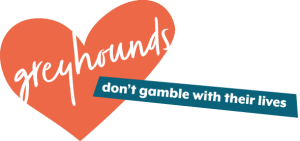Victory! On 10 December 2024, Racing Minister Winston Peters announced that greyhound racing in New Zealand will be banned after a 20-month phase-out period.
This decision marks a monumental win for animal rights in Aotearoa and will protect thousands of dogs from unnecessary pain, suffering, and death.
To address immediate concerns, the Minister introduced the Racing Industry (Unlawful Destruction of Specified Greyhounds) Amendment Bill, which will be passed under urgency to prevent the unnecessary killing of racing dogs.
With this ban, the Government has finally honoured the voices of New Zealanders who have long demanded an end to greyhound racing. This victory is a testament to the tireless campaigning efforts of animal advocates and public outcry for the compassionate treatment of greyhounds.
The Government must now ensure a smooth transition for greyhounds, supporting their rehabilitation and rehoming into permanent, loving homes where they belong.

